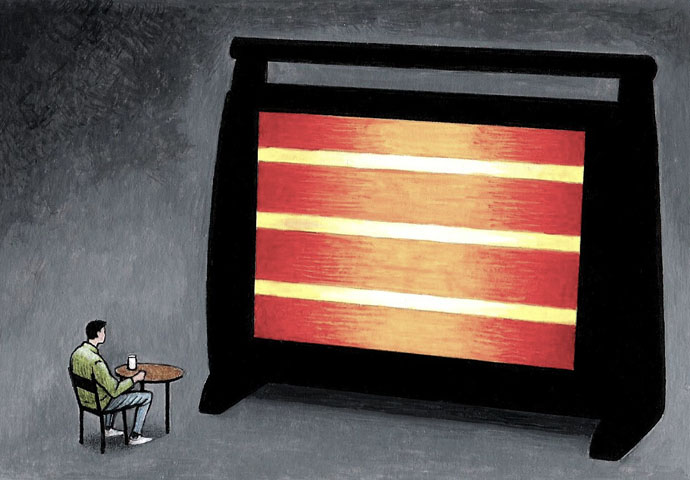Why the energy firms’ warm words are leaving us cold
COMMENT: The winter crisis will come into sharper focus in the coming days as temperatures severely plummet, but who is really going to help?
Thursday, 8th December 2022

Illustration by John Sadler www.johnsadlerillustration.com
FORGIVE us for being sceptical but we have a frosty response to the television and radio adverts for the giant energy firms you may have heard recently.
A friendly voice will tell you that they recognise these are hard times for all of us and that a nice cosy conversation with the suppliers will ease the stress so many are facing as bills escalate.
There are options available, we have all been told. None of these options, however, will successfully wish away the punishing debts that people are racking up through no real fault of their own.
The winter crisis will come into sharper focus in the coming days as temperatures severely plummet, homes become colder and heating in some form will have to be used.
While the richest percentage may be immune to one price rise after another, ludicrous new household energy bills bear no sensible relation to the ability for many people to pay – and these include huge numbers in full-time work.
The voices in the adverts may sound reassuring, but this week we learned energy firms are being much firmer when chasing unpaid bills. Some are securing court warrants to ensure access when insisting that a pre-pay meter is installed.
These meters can then be used to charge for energy use as well as debt repayments – a machine spinning out a form of financial torture with the threat that the power will go off if not constantly fed with money.
In another case, outlined by the i newspaper, investigators began asking a woman’s neighbours how often she turned the lights on. Desperate to cut her bills, the woman was not tampering with her meter but living in the dark and worried to put her TV on.
It’s a world away from the softly-spoken adverts offering support. Perhaps, those options could include the big firms, which have held something close to a monopoly on supply, agreeing not to pay fantasy wages to its executive staff or to understand that the windfall earnings generated by the fuel crisis could be redistributed to lessen this outrageous assault on people struggling to get by.
The government has options, too. New chancellor Jeremy Hunt slashed energy bill support promised by his short-lived predecessors.
Instead, we have pledges from the new management that the “most vulnerable” will still be supported. When you move from just being vulnerable to the “most vulnerable” is not quite clear.
The Labour opposition also has options: its windfall tax ideas are positive, but how far will it really go in taking the firmest grip possible with a fully publicly-accountable and nationalised supply through its ‘Great British Energy’ pledge?
None of these courses of action will be waiting at the end of the phone when you call the chummy voices on the energy giants’ adverts.